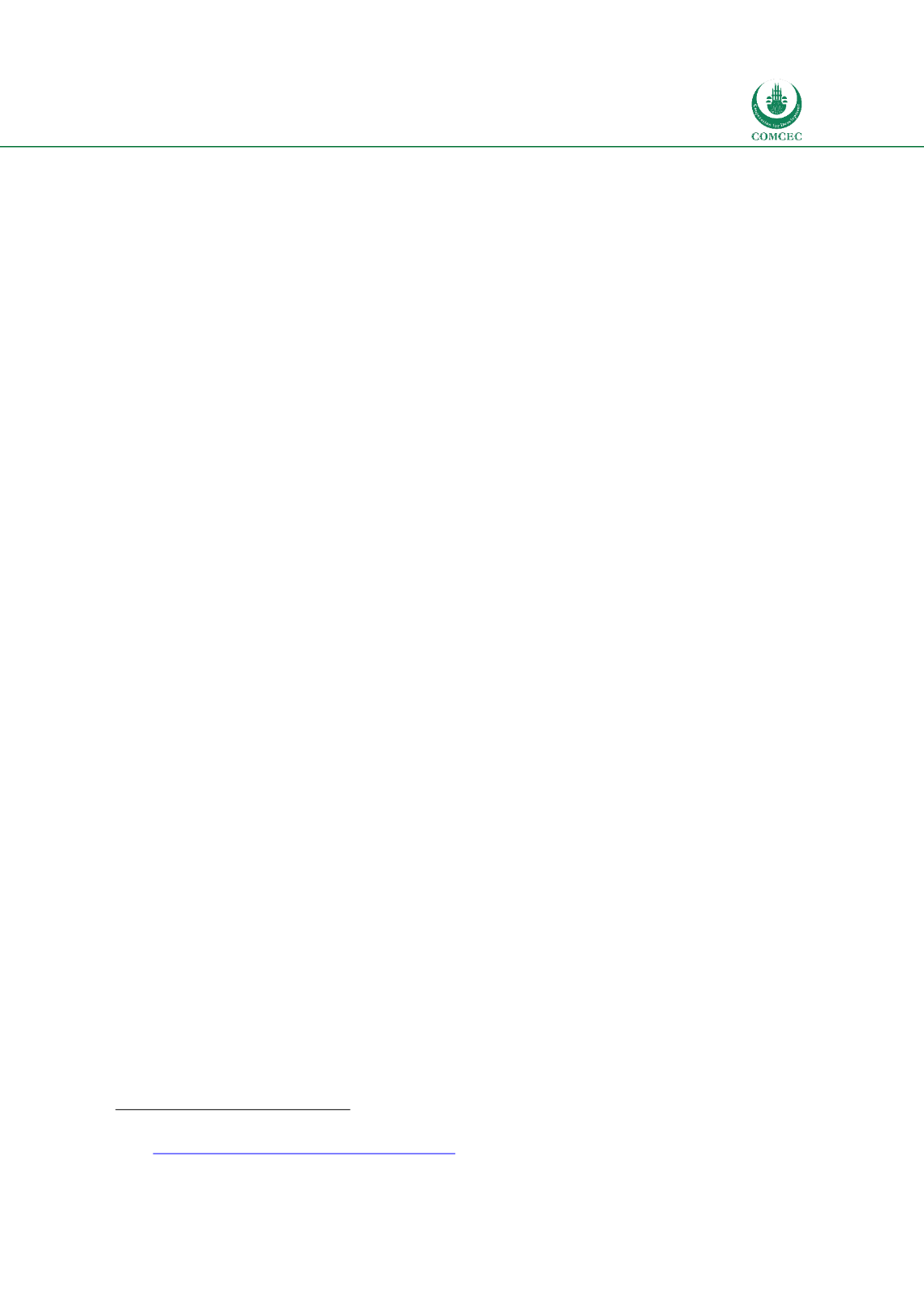

National and Global Islamic Financial Architecture:
Prolems and Possible Solutions for the OIC Member Countries
85
Under IFSA 2013,
takaful
operators are required to separate their general and family
takaful
businesses and hold separate regulatory capital for each segment by the year 2018 (CIBAFI et.
al. 2015: 192). BNM (2013) issued
Risk-Based Capital Framework for Takaful Operators
in June
2013 for General and Family Takaful companies. Among others, the guidelines cover capital
charges for credit, market and operational risk arising in
takaful
companies. The risk based
capital framework not only improved the capital holdings of
takaful
operators but also
improved the underwriting of risks and enhanced IT and information management systems to
improve analysis and monitoring of risks (BNM 2013: 100).
The Malaysian securities market operates under the regulatory purview of SCM. The functions
of the SCM include regulation of all matters related securities, futures contracts, unit trust
schemes, take-overs and merger of companies to promote their development. SCM also
monitors and supervises exchange holding companies, exchanges, clearing houses and central
depositories, ensures the good business conduct of organizations associated with the securities
market, and protects consumers. SCM has a separate department on the Islamic Capital Market
dealing with Islamic capital market issues (SCM 2016c). To facilitate the issuance of
sukuk
, SCM
has come up with
Guidelines on the Offering of Islamic Securities
and
Guidelines on the Offering
of Asset-Backed Securities
in 2004 and
Guidelines on Trust Deeds 2011.
26
4.4.3.
Shariah
Governance Framework
IFSA 2013 establishes BNM as a regulator of
Shariah
related issues and emphasizes
strengthening the Shariah governance framework to promote Shariah compliance in the
Islamic financial sector. Other than providing advice to BNM and financial institutions on
Shariah related issues arising in financial businesses, Section 51 of the Act identifies the
functions of the SAC to include ascertaining the Islamic law of any financial matter by issuing
appropriate rulings. IFSA 2013 also strengthens the Shariah governance framework at the
organizational level (Fen and Tsin 2013).
Part IV of IFSA 2013 covers Shariah Requirements that is divided into three divisions: Shariah
compliance; Shariah Governance; and Audit and Shariah Compliance. The law makes Shariah
non-compliance an offence that is punishable and gives BNM extensive powers to intervene
when any breach takes place. Specifically, Article 28 (1) of IFSA 2013 requires that a financial
institution should ensure that ‘its aim and operations, business, affairs and activities are in
compliance with Shariah’ and Articles 28 (5) and 29 (6) stipulates if a person contravenes
Shariah principles and is noncompliant with standards of SAC ‘commits an offence and shall, on
conviction, be liable to imprisonment for a term not exceeding eight years or to a fine not
exceeding twenty-five million ringgit or to both’.
After the enactment of the Central Bank Act 2009, BNM came up with a regulatory note on
“Shariah Governance Framework for Islamic Financial Institutions” in 2010 (BNM 2010). The
guidelines outline the two-tier Shariah governance infrastructure with the first one dealing
with the Shariah Advisory Council at the central bank level and second one related to Shariah
committees at the financial institution level. The Central Bank Act of 2009 defines the SAC as
an ‘apex authority for the determination of Islamic law for the purposes of Islamic financial
business’ (BNM 2010: 1). BNM also has a detailed Shariah governance framework for IFIs that
26
Se
e http://www.sc.com.my/legislation-guidelines/sukuk/ for a list of SC guidelines for sukuk in Malaysia.
















